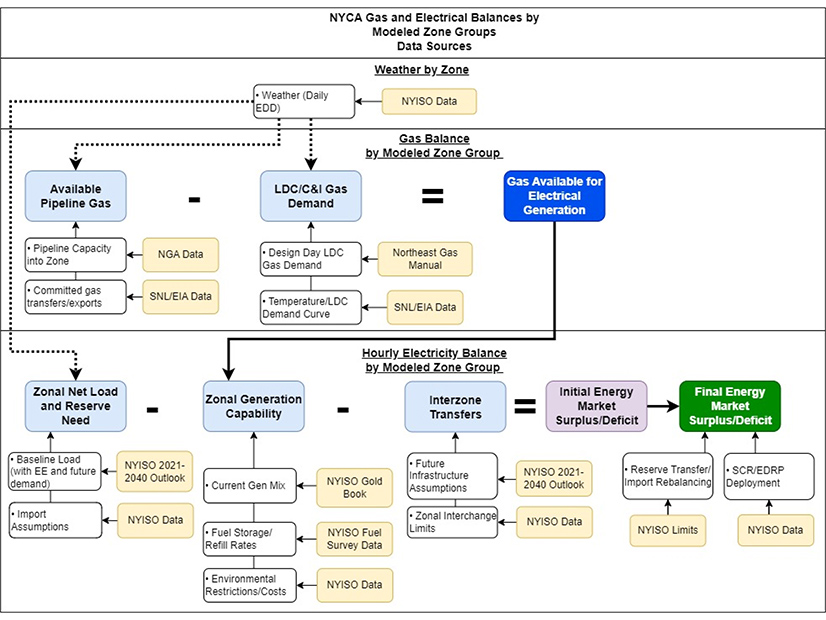An upcoming fuel and energy security study will examine the combined impacts of electricity generation trends and extended cold snaps on NYISO’s system reliability, the Analysis Group (AG) told the ISO’s Installed Capacity Working Group/Market Issues Working Group (ICAP/MIWG) on Friday.
The main thrust of the study is to identify circumstances under which available resources will be insufficient to meet both load and required reserves before emergency actions as the New York grid transitions to a greater dependence on renewable resources.
For the near-term, the study will assume NYISO’s continued reliance on fossil fuel-fired generation, followed by increasing reliance on weather-dependent and variable resources over the long term. Within that context, it will examine 17-day cold periods in winter 2023/24 and two other future winters.
AG plans to use historical weather and load data, literature reviews of other RTOs, projected resource demand and supply forecasts, and assumed worst-case scenarios to assess the potential risks associated with NYISO’s transition and the impacts extreme weather events could have on the grid.
The assessment will use criteria such as net load and reserve needs, gas generation availability, interzonal transfers, and environmental constraints to identify hourly energy surplus and deficits in New York at a zonal level.
Paul Hibbard, a principal with AG, said the company conducted a similar study in 2019 that found “a continued reliance on fossil fuels was necessary in the near term,” and that NYISO could build more transmission to “address potential reliability risks associated with increasing variable generation.” (See “Fuel Security Study,” Analysis Group Presents NYISO Carbon Pricing Study Plan.)
Mark Younger, president of Hudson Energy Economics, asked whether the upcoming study will offer any noteworthy changes from the 2019 study.
Hibbard said the company is “kind of repeating what was done previously” given that the methodology and basic source material are similar, but the underlying risk scenarios determining the current study’s assumptions are different because of the passage of time.
Hibbard said the goal of the new study is to “identify circumstances under which resources may be insufficient to meet demand plus reserves without taking emergency actions.”
AG will return in May to give a more detailed presentation on the study’s assumptions, data and scenarios.
In early summer AG will share the study’s initial findings and recommendations, then present the final report later that season.
ECBL Aggregation Manual Updates
NYISO also presented the Friday ICAP/MIWG with draft manual updates for sections covering the economic customer baseline load (ECBL) that adjust the calculations to a five-minute basis for distributed energy resources.
The ECBL, which was implemented into NYISO markets in 2018, provides an estimated energy baseline for the ISO to measure the amount of demand reduction supplied by a demand-side resource participating in a day-ahead demand response program.
This update was one of a series of aggregation manual updates, and NYISO will return to share additional manual revisions on April 27.



